Inspirational! Andy loves coaching as he fights Parkinson’s
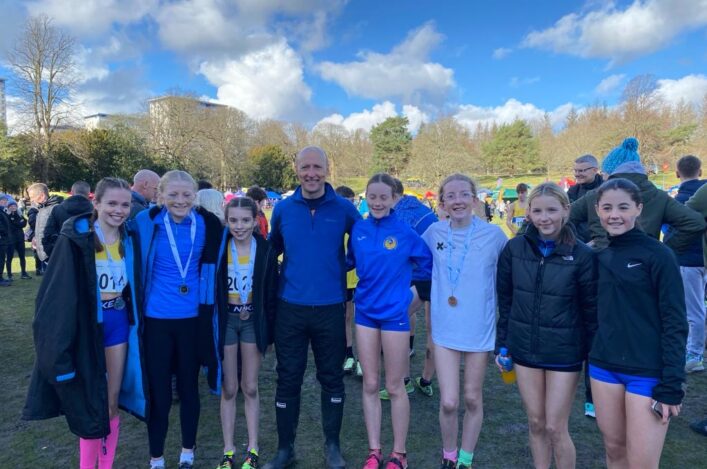
Coach Andy Munro with Giffnock North AC athletes
By Katy Barden
Engineer Andy Munro is a lover of spreadsheets, but his continuous research and data collection isn’t linked to his day-job. It’s far more important than that.
The 52-year-old – a coach at Giffnock North and a committed Munro bagger – was diagnosed with Parkinson’s disease in 2021.
Since then, he’s documented an extensive set of facts, figures, and ‘success story’ case studies aiming to identify what common factors, if any, are shared by those who have lived well with the progressive neurological condition.
‘The one thing that always comes out is exercise and, in particular high intensity exercise, so running – alongside good nutrition – is right up there,’ he says.
‘Parkinson’s will progress at different rates, and with varying symptoms for different people, however, those who seem to be doing ok after many years are the ones who are exercising and eating well.’
Andy first started to experience symptoms in 2019 when his arm froze as he was trying to whisk an egg.
He is not a medical expert, nor does he claim to be, but in a concept which will resonate with most people: he’s simply doing what he can to maximise his quality of life.
Andy running the Linwood parkrun
Parkinson’s disease is a condition in which parts of the brain become progressively damaged over many years.
The main symptoms are an involuntary shaking of particular parts of the body, slow movement, and stiff and inflexible muscles. A person with Parkinson’s disease can also experience a wide range of other physical and psychological symptoms.
‘There are a massive number of things you can do yourself to alleviate symptoms and also to slow down progression which the medication doesn’t do, the primary one being exercise,’ he says.
‘There’s also a piece about purpose, social skills and hobbies, and the athletics club gives me a lot of that.
‘I don’t compete as much anymore, but I coach kids and I absolutely love it. When you work full-time it can be quite tiring heading back out to coach at night; but being out there coaching the kids is energising.’
Andy is discouraged by the lack of exercise-related action taken by those who are either providing a diagnosis of Parkinson’s or being diagnosed themselves. Too much rest – or adopting a sedentary lifestyle – he says, is ‘quite literally the worst thing you can do’.
‘Once you’ve lost mobility it’s hard to get it back again,’ he explains.
‘I fine-tune exercise to a few specific things that are known to be good.
‘I go to a boxing fitness class every week which is intense, but also focuses on hand-eye coordination which is important. I also cycle and do two 5k runs and two circuit classes per week, as well as yoga stretching, meditation and breath work.’
Having always been active – he’s completed a variety of tough events including Barcelona Marathon and Arran’s Goatfell Hill Race – it makes perfect sense that his priority goal is to complete the Scottish Munros.
‘I’m absolutely determined to finish,’ he says of an epic challenge that has been near-enough a lifetime’s work.
‘When I was diagnosed I had about 100 Munros to go. I’m now down to about 60 to go and obviously I’m trying to get them all done while I still can. Hopefully I’ve still got many more years of hillwalking left but I want to make sure, I want to get them in the bank.
‘I have a wee extra target too; my dad is 85 and although he’s had a few recent health issues, he’s still pretty active. He might be able to join me on the last hill, and that’s what I’m focused on.’
Andy says he’s a little bit less powerful than he was, but his condition hasn’t progressed significantly since his diagnosis.
Earlier this year he took part in a group charity walk for Cure Parkinson’s across the North Glen Shiel Ridge, climbing 12 Munros in 36 hours. The related publicity has been hugely positive, resulting in people sharing their own experiences of the condition.
‘I wanted to set an example for my kids and for other people that when something like this comes along, you don’t have to give into it,’ he says.
‘Once your story is out there it’s amazing how many other wee stories it kicks off (about relatives etc). If even one person reads about your story and goes, ‘There’s a bit of hope here, maybe exercise and nutrition can help’ – then that’s brilliant, isn’t it?’
Tags: Andy Munro, Features, Giffnock North AC, Katy Barden
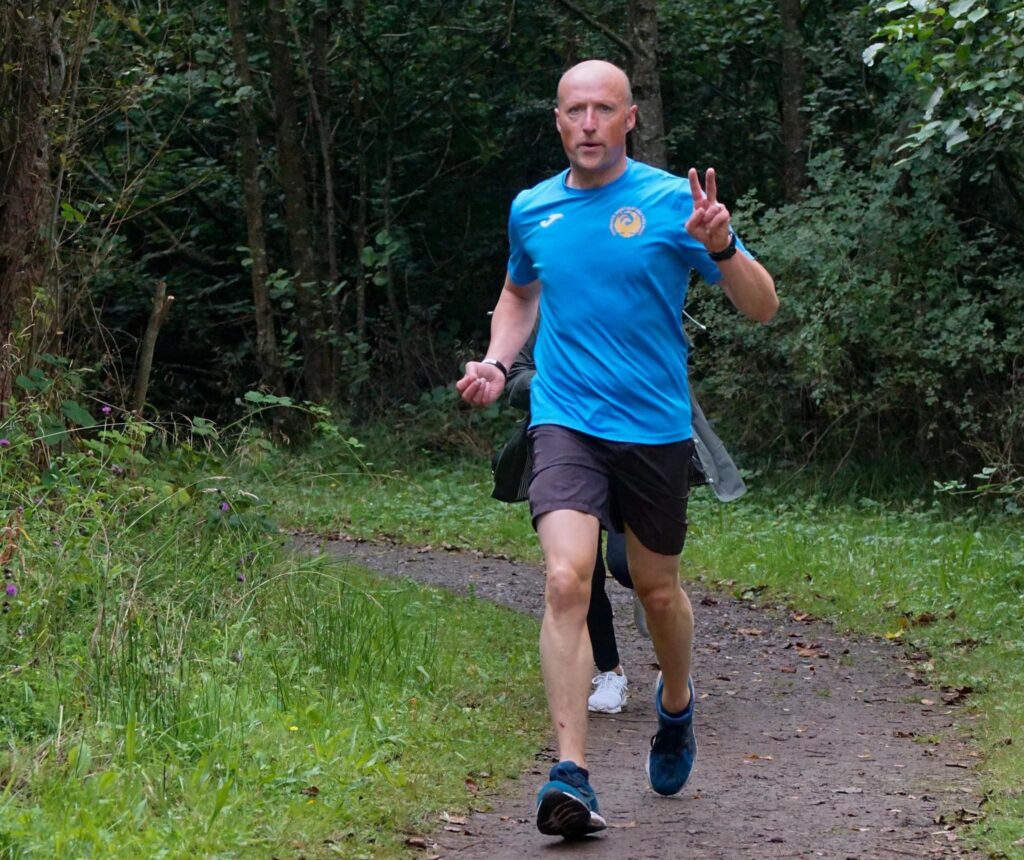
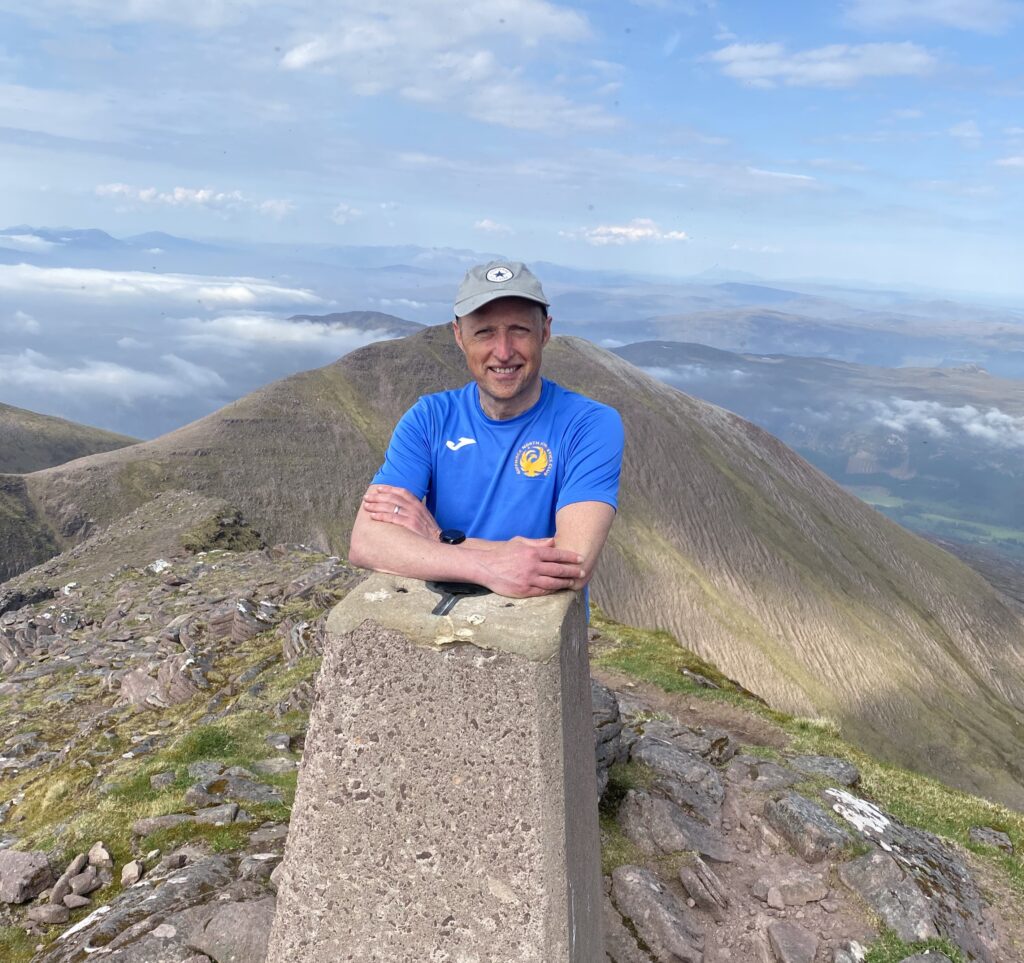
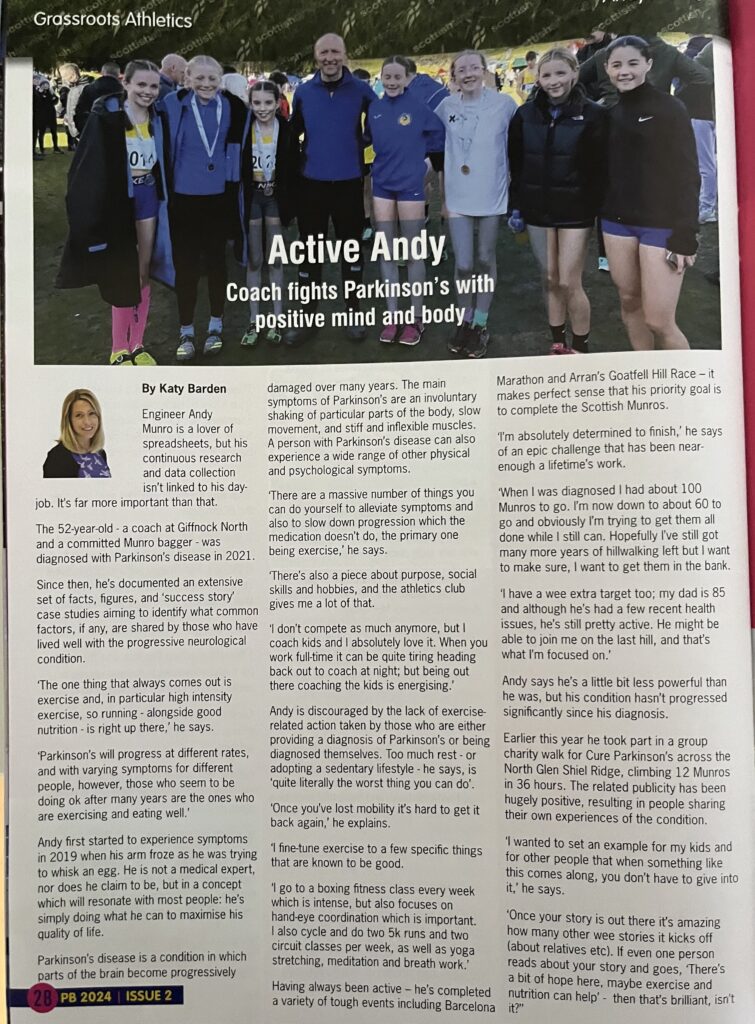

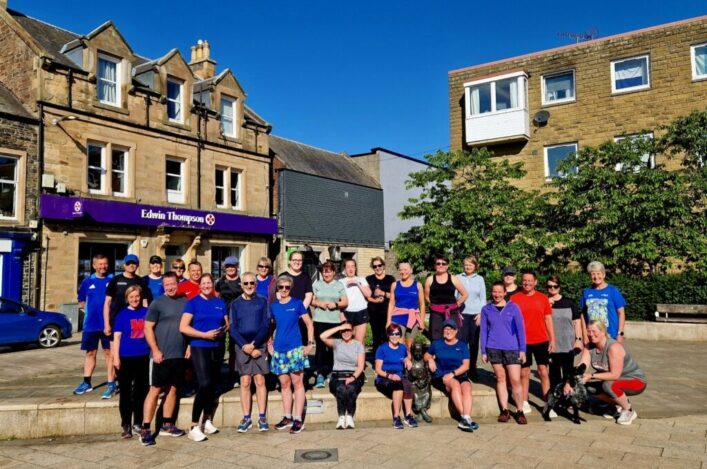
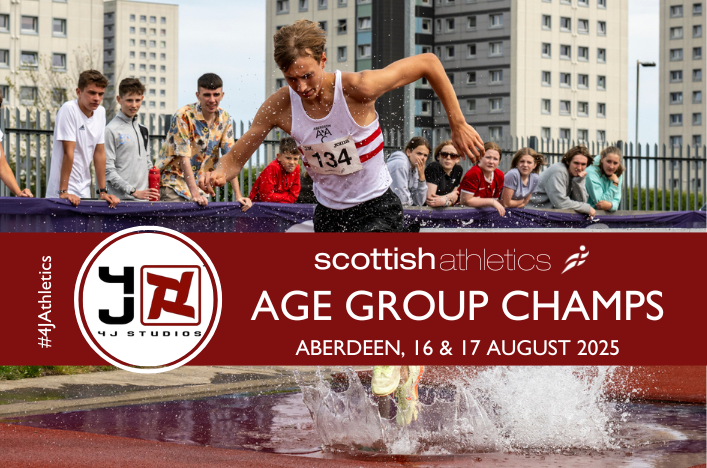
Latest Facebook update
Problem displaying Facebook posts. Backup cache in use.
Click to show error